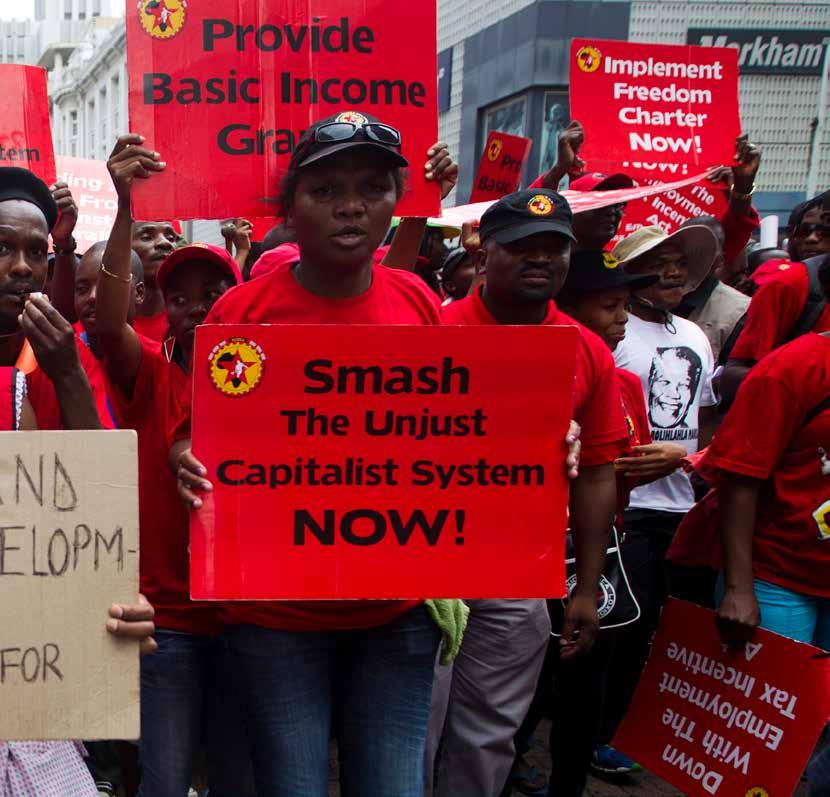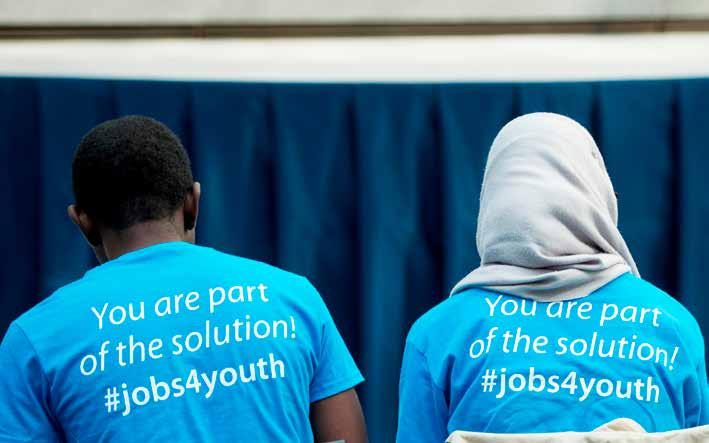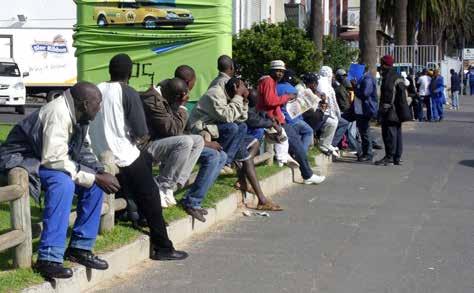
5 minute read
Searching for a solution
by kwedamedia
FOR OUR YOUTH UNEMPLOYMENT

Advertisement
Unemployment in South Africa, now standing at 26.7% according to statsSA, remains one of the most serious impediments to our growth and development. This situation is exacerbated by the fact that the unemployment rate for our youth stands at 53%. As our youth makes up about 35% of our population approximately nine million young people in South Africa is without jobs.
The above statistics should come as a wake up call for all of us. At this time in the economic and social climate we find ourselves in the situation can only become worse. The intervention of every South African is required to reverse the situation. Those that are in positions of power and influence should realize that we are sitting on a ticking time bomb. How often have we witnessed service delivery protests being led by young people? These protests offer young people the

opportunity to release their anger at the almost hopeless situation they find themselves in.
Both the private and public sector should accept responsibility for the crisis we now find ourselves in with regard to youth unemployment specifically and unemployment generally. Many commentators would like to underplay this serious state of affairs by saying that youth unemployment is a global phenomenon, however the statistics say otherwise. According to Trading Economies, The highest country next to South Africa experiencing youth unemployment is Spain with 34%, Italy with 32% and France with 20%. The lowest is Switzerland. Our problem in respect of youth unemployment is a serious problem and as such we need to recognize the serious implications for all of us unless this matter is addressed and addressed as a crisis.
It is fortunate that our new president has taken heed of this crisis and has indicated that youth unemployment is top of the agenda in the presidency. He has also indicated that he is putting together a team to tackle this problem as a matter of urgency. In March the president launched the Youth Employment Services (YES) that aims to see more than one million young people between the ages 18 to 35 being offered paid work experience over the next three years.

President Ramaphosa says that the Youth Employment Services will have a positive effect on youth unemployment in the country. This initiative was launched in partnership with business, government, labour and civil society. The concept is for business to provide paid work experience for one year or through small business development where young people are empowered through training and funding to start and grow their own businesses. Ramaphosa says that this will tackle the high rate of unemployment among the youth, as they will be come employable. About 100 companies have signed up for the programme.
When one looks at the number of unemployed youth at about nine million and we assume that one million would be accommodated by the YES programme the question is what about the other eight million? Clearly we cannot therefore accept this this initiative will be the silver bullet that will take care of the crisis. A comprehensive and holistic approach should be developed.
The starting point will be to establish a youth employment agency funded by both government and the private sector. The first task will be to do a skills audit of the unemployed youth and establish where these unemployed youths can be best utilized. We then need both government and the private sector to identify the skills that they require in their organizations and find space to employ these candidates. The next step would be to send those that have the ability to improve their skills to the various institutions to upgrade their skills.
In the manufacturing and construction sector consideration should be given to reintroduce the apprenticeship system. This system will be able to absorb those young people who are not academically suited to enter institutions where a higher education level is required. This system will encourage many youths to take up a trade that will give them the qualifications to earn a reasonable income and also open up opportunities to establish their own businesses.
The private sector should accept that they have a responsibility towards the growth and development of the country. We know by the results of the financials of many companies that huge profits are being made but nowhere do we see meaningful investment being made by these companies. The published results focus on dividends to share holders and payments to executives. No attention is paid to the investment of human capital and expansion programmes that will create jobs. We are entering a very dangerous phase of our democracy where the inequality gap is increasing at an alarming rate.
If we allow this situation to continue, we will not be able to keep the lid on the pressure cooker of youth unemployment for much longer. Poverty is a result of unemployment. This leads to hunger and anger. Young people are by nature tempestuous and exuberant. We need to heed these signs and reflect on how we as a country are developing our socio economic strategies and policies. Companies need to consider paying a dividend to the development of skills and jobs for unemployed youth. After all the reported financials of companies clearly indicate that South African companies are making huge profits. With these huge profits a paradigm shift is needed that will include investment in human capital.
Government must create a favourable environment and incentives for those companies willing to rethink their



investment strategies. These companies need to provide a clear plan on how they will create jobs for the youth and invest in human capital. Government must move swiftly to recognize the need to rework their socio economic policies to ensure that the focus is on creating an environment that is focused on an inclusive drive to reverse youth unemployment.
We cannot proceed with the same socio economic models of the past at this time of great uneasiness and hopelessness in the majority of our communities in South Africa. The time for change has arrived and an immediate robust approach to this vexed issue of youth unemployment is needed without further delay. As they say in the classics unless action is taken now, “the future is too ghastly to contemplate”


